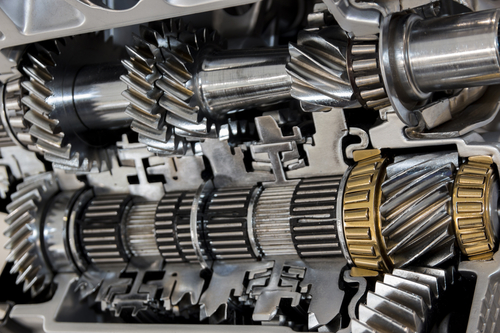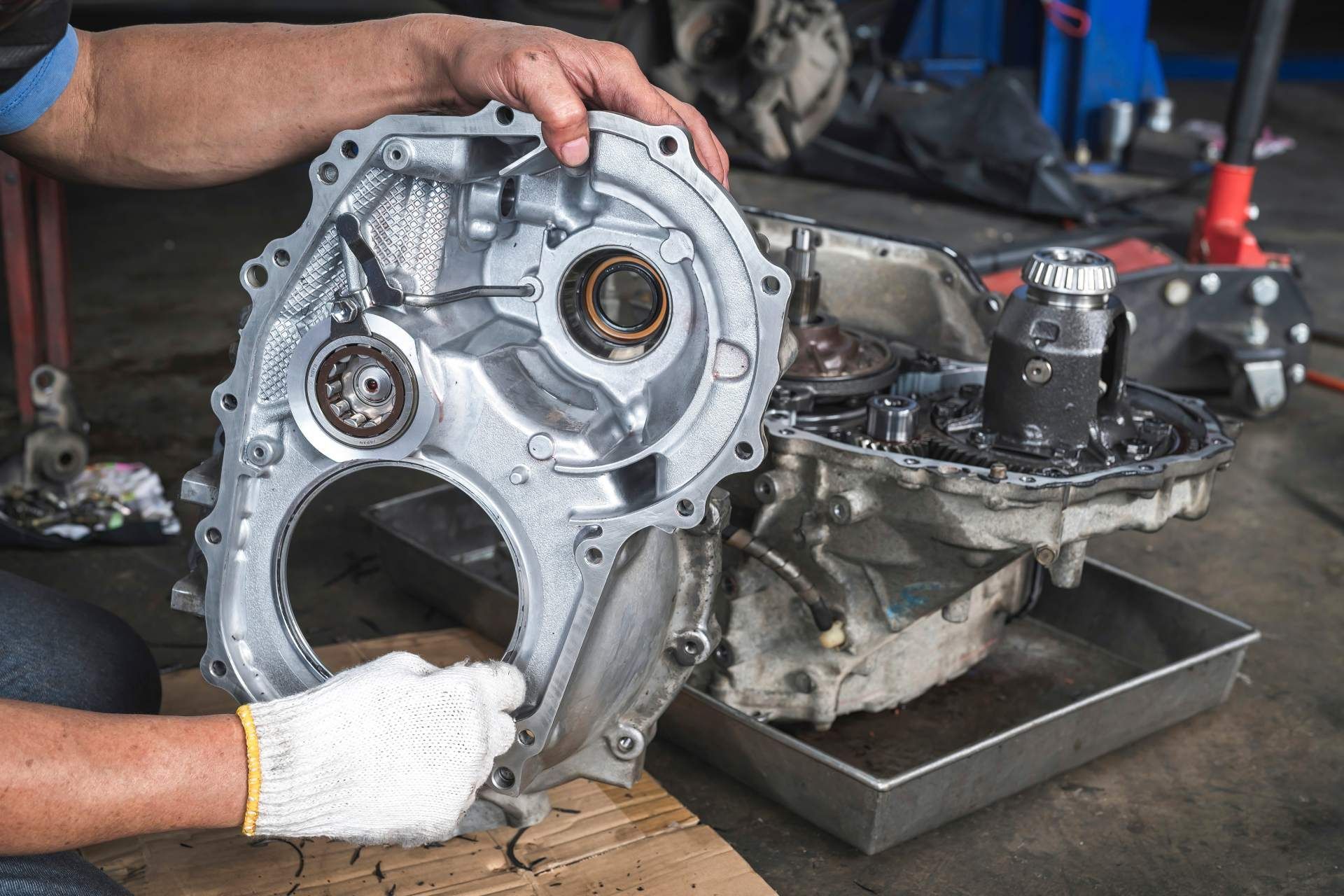Triad Area Transmission Shop Redefined: Browsing the Roadway to Smooth Efficiency
Triad Area Transmission Shop Redefined: Browsing the Roadway to Smooth Efficiency
Blog Article
Typical Indications of Transmission Troubles and What You Can Do About Them
Transmission problems in automobiles can trigger substantial aggravation and potential safety hazards. Recognizing the common signs of transmission issues can help you address them quickly and avoid further damage or costly repair services. This short article will talk about several of the common indication, such as weird noises, problem shifting gears, melting scents, fluid leaks, and postponed interaction. By understanding these indicators, you can take appropriate activity to stop additional damage to your transmission and ensure the smooth procedure of your automobile. Whether it's seeking professional aid or taking precautionary steps, understanding these indicators empowers you to make informed choices and preserve the longevity of your automobile's transmission.
Unusual Sounds
One usual indication of transmission problems is the occurrence of weird sounds, which can indicate underlying concerns that call for immediate focus. These uncommon audios can vary in nature and strength, and they typically act as a caution sign that something is amiss with your car's transmission system.
Among the most typical odd noises connected with transmission issues is a grinding sound. This sound commonly happens when moving equipments and can indicate damaged equipments or a lack of transmission liquid. Ignoring this noise can bring about more damages to the transmission system, resulting in expensive fixings.
It can indicate reduced transmission liquid degrees or a stopping working pump. Resolving this issue quickly can stop further damage to the transmission and prolong its life-span.

Finally, a clunking or banging sound can additionally be a reason for problem. When shifting equipments or during velocity and deceleration, this sound is usually listened to. It can indicate damaged or worn-out transmission places, which can bring about the transmission becoming misaligned or detached.
Trouble Shifting Gears
If you experience problem changing equipments in your vehicle, it may suggest transmission problems. Trouble changing gears can manifest in numerous ways, such as grinding, slipping, or hesitation when altering gears. This concern can happen in both hand-operated and automatic transmissions and ought to not be disregarded, as it might result in additional damages and costly repair services otherwise addressed quickly.
One feasible reason for problem shifting equipments is reduced transmission fluid degrees. Inadequate fluid can prevent the smooth operation of the transmission, making it more challenging to involve the equipments appropriately. transmission shops Triad Area. Examining the liquid degree and adding more if needed might reduce the trouble.
Another prospective offender is a used clutch or clutch components in manual transmissions. Over time, the clutch can become worn, resulting in troubles in shifting gears efficiently. In such cases, replacing the used clutch or its parts may be needed to recover appropriate shifting.
In automatic transmissions, difficulties moving equipments can be triggered by issues with the shutoff body or solenoids. The shutoff body regulates the flow of transmission fluid, while the solenoids control the stress required for equipment changes. If these parts end up being defective, it can lead to gear shifting troubles. In such instances, seeking professional support is encouraged to identify and deal with the issue.
Burning Odor
A burning smell is a clear sign of possible transmission issues. If you see a burning odor originating from your vehicle, it is very important not to ignore it as it can be an indicator of a severe concern with your transmission. The transmission is liable for transferring power from the engine to the wheels, and any type of issues with it can affect the performance and security of your automobile.
There are several potential reasons for a burning odor in your transmission. One usual cause is overheating, which can happen due to reduced transmission fluid levels or a malfunctioning cooling system. Rubbing between the relocating parts of the transmission can likewise generate warm and trigger a burning smell. Additionally, damaged clutch plates or slipping clutches can create a burning odor.
Disregarding it can lead to additional damage to your transmission and expensive repair services. The very first action is to inspect the transmission fluid level and condition. If it is low or has a charred smell, it may be necessary to replace or refill the liquid.
Fluid Leaks
Liquid leakages are an usual indicator of transmission issues and ought to be dealt with quickly to stop additional damage. Transmission fluid plays an essential role in the smooth procedure of an automobile's transmission system. It lubes Discover More the moving parts, cools off the transmission, and provides hydraulic stress for equipment shifts. Any leak of this fluid can lead to serious concerns and prospective failing of the transmission.
The fluid may have a distinctive burnt smell or a wonderful smell, depending on the kind of transmission liquid used. Additionally, low transmission liquid degrees can create problems such as slipping gears, delayed or unpredictable moving, or weird sounds coming from the transmission.
When encountered with a liquid leakage, it is necessary to take instant action. Common locations where leakages happen include the transmission frying pan gasket, result shaft seal, input shaft seal, and transmission cooler lines.

Delayed Interaction
One usual sign of transmission troubles is a postponed involvement, which can be a sign of underlying issues that require immediate attention. When changing equipments or when the automobile takes longer than normal to react to the motorist's input, delayed interaction refers to read this the delay experienced (transmissions Triad Area). When trying to speed up from a full quit., this can manifest as a hesitation or a jerking activity.
There are a number of prospective causes for postponed interaction. One possibility is reduced transmission fluid levels, which can prevent the transmission from running correctly. Another reason might be worn or damaged clutch plates, which might need substitute. Furthermore, a defective solenoid or a malfunctioning valve body might also bring about postponed engagement.
Ignoring it can result in further damage to the transmission and much more costly repair services down the line. The initial action is to examine the transmission liquid degrees and guarantee they are at the proper degree.
Final Thought
Finally, recognizing usual indicators of transmission troubles such as odd sounds, problem moving gears, burning smell, liquid leakages, and postponed interaction is important for preserving a well-functioning car. By quickly dealing with these issues, people can protect against additional damage and costly repairs. Normal upkeep and seeking professional aid when required will certainly guarantee internet the smooth procedure of the transmission and extend the life expectancy of the vehicle.
It can signify damaged or damaged transmission places, which can lead to the transmission ending up being misaligned or disconnected. (transmissions Triad Area)
Transmission liquid plays a vital function in the smooth procedure of an automobile's transmission system. Additionally, reduced transmission liquid levels can create problems such as sliding gears, delayed or irregular moving, or weird noises coming from the transmission.
Typical areas where leaks take place include the transmission frying pan gasket, result shaft seal, input shaft seal, and transmission cooler lines. One opportunity is reduced transmission fluid degrees, which can protect against the transmission from operating appropriately.
Report this page